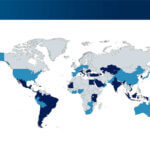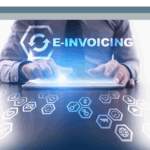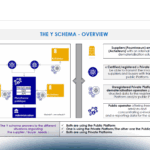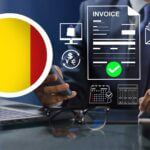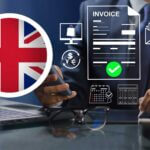eInvoicing will generate €111 billion in VAT revenue and €41 billion in business savings in the EU over ten years
- Over 80 countries worldwide have introduced mandatory eInvoicing and 13 more have announced plans to introduce B2b eInvoicing in the coming years
- Moving from paper-based invoicing to PDF formats saves over 7% of time per invoice. Adopting formats such as EDI reduces processing time by up to 88% per invoice
Currently, over 80 countries worldwide have introduced or announced mandatory eInvoicing both in the B2g and B2b domain, including 22 that already have B2b mandates in place and 13 that are preparing to introduce them. The economic impact of eInvoicing is particularly compelling: according to estimates from the International Observatory on eInvoicing of the Politecnico di Milano, moving from paper-based invoicing to PDF formats yields time savings of over 7% per invoice. Adopting structured eInvoicing formats, such as EDI or XML-based, further amplifies efficiency, reducing processing time by up to 88% per invoice. But the advantages are not only financial: they also include a reduction in tax evasion and positive effects on the ecosystem, with benefits for service providers as well. In the EU, eInvoicing is expected to generate an additional €111 billion in VAT revenue and €41 billion in business savings over ten years, marking a strategic transformation of global financial ecosystems.
This is what emerges from the research “Navigating eInvoicing: Sail into the Future” released today by the International Observatory on eInvoicing of the Politecnico di Milano at the E-Invoicing Exchange Summit in Vienna. The International Observatory on eInvoicing is one of over 50 research streams of the Digital Innovation Observatories of the POLIMI School of Management (www.osservatori.net), a research center whose mission is to create and spread knowledge on the opportunities and the impact of digital technology on companies, public authorities and citizens.
Riccardo Mangiaracina, Scientific Officer of the International Observatory on eInvoicing of Politecnico di Milano says: “The global shift from paper-based to digital invoicing is gathering momentum as governments set their sails toward eInvoicing and eReporting mandates to modernize financial systems and strengthen tax compliance. But the benefits of eInvoicing extend far beyond compliance. For companies, eInvoicing is a steady wind that improves efficiency, reduces errors linked to manual entry, prevents lost invoices and accelerates payment cycles through automation. Service providers can also expand their role by offering value-added services such as compliant digital archiving, e-signatures and real-time monitoring dashboards. For tax agencies, eInvoicing strengthens VAT/GST collection, reduces fraud and enables transaction data to be used more effectively to inform public policy”.
Building interoperability
As more countries set sail on their eInvoicing journey, the seas of digital invoicing risk becoming increasingly turbulent, with each country charting its own course through a patchwork of varying standards, formats, and channels. In this scenario, interoperability is a significant challenge. As the demand for eInvoicing grows, the Peppol network has established itself as one of the most trusted solutions for ensuring interoperability. According to the International Observatory on eInvoicing, between 2023 and 2025 the number of Peppol-certified service providers in the world grew from 359 to 506. The increase in Peppol-certified service providers is a sign that more nations are committed to this system, which will ensure smoother and more efficient e-invoicing processes for everyone.
Catching the wind of change
71% of providers operating in markets with eInvoicing mandates have reported an increase in demand for P2P and O2C services. Paola Olivares, Research Director of the International Observatory on eInvoicing of the Politecnico di Milano says: “Digitising invoices is not the destination, but the first step on a longer journey. Once merely regarded as documents, e-invoices are increasingly recognised as valuable data, opening up new ‘islands’ of opportunities and fertile ground for innovation. This transformation generates positive spillover effects for providers, including an expanded market reach, stronger competitive positioning, and greater capacity to scale integrated P2P and O2C service offerings”.
The wave of innovation is already reshaping the sector, starting with its start-ups, which have seen an increasing role for embedded payments and banking integration, artificial intelligence and automation, real-time analytics and advanced system connectivity. These developments transform invoicing platforms into hubs where instant payments are possible, compliance is continuously monitored, anomalies are detected, and strategic insights are extracted in real time.
Contatta il nostro ufficio stampa per informazioni e assistenza
Scopri altri contenuti di International Observatory on Electronic Invoicing

